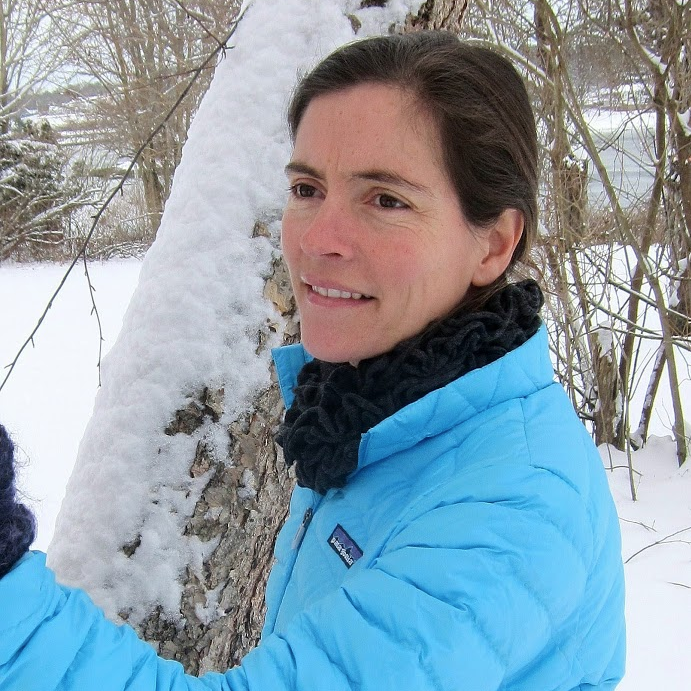Essay by Paula Hoy
A Young Writer’s Promise to Her Mother
It began with a fifth-grade writing assignment. Mrs. Minton had us pick words from a bag for use in a story. I drew wool coat and pawn shop, then wrote a long tale about a shy, mousy girl who spends her days observing others. She watches an old woman pawn her beloved wool coat in order to buy food, so the girl sets off on a daring mission to buy the coat back and return it to its owner.
Mrs. Minton gave me a good grade on “Old Wool Coat in the Pawn Shop” and lovely compliments with her red pen. But it was my mom’s reaction that mattered.
The afternoon I received my story back, I found her, as usual, in the kitchen. Pots on the stove, smells wafting from the oven, dishes rinsing in the sink—it was always close to impossible to remove my mother from her treasured den, especially during dinner-making hours. But she noticed the stapled pages I held. Without a word, she shut off the burners, dried her hands, set the timer, and guided me by my shoulders out of the kitchen and into our pristine living room.
That alone was something. The living room was for honored guests, not us unruly children—and yet, there we sat, on the soft, rose-colored love seat. My skin tingled. I had my mother’s undivided attention. I was radiating, humming with bliss.
She read silently, her long fingers obscuring her mouth, her eyes unreadable behind her smudged glasses. When she finished, she dropped the sheets of paper, removed her glasses, and took me in her arms.
She was quiet, but something wet hit my face. I jerked my head up.
My mom rarely cried. She had just started monthly chemo treatments but was working hard to make sure our daily routines continued uninterrupted. Cancer, death, painful goodbyes—I had seen her tackle them all with resolve and tenderness, but few tears. Now, I was scared.
“Promise me you’ll keep writing,” she said.
I nodded, and we untangled our arms. Then she retrieved my story from the floor and went on to give me a detailed analysis of what she liked and thought worked.
That old story is long gone, but I still remember how her face suddenly brightened. Without her glasses, I could see myself reflected in her dark eyes. Even her cheeks, which had been drawn of all color in recent weeks, blossomed with pink. I felt older than the eleven-year-old who had walked in the room fifteen minutes before.
She died eighteen months later at 52. She never got to see me run or score goals, graduate, live and work in a big city, fall in love, marry, become a mother myself. All those things would’ve made her proud, I know.
And I’m still writing. I have been for three decades.
I started by filling spiral notebooks with stories. Then I filled diaries with tortured entries chronicling my adolescence. College introduced me to the joys of the term paper. I’d pretend to share my roommates’ agony over them, just to fit in, but I secretly loved searching for call numbers, getting lost in the stacks, the late hours in the library when the lights would burn defiantly into the night.
Later, I wrote books about global development and international aid. I’ve researched agencies and individuals whose mission it is to make this world a little more equitable and sustainable. I’ve been inspired, humbled, and sometimes outraged. I’ve written teachers’ manuals and curriculum guides, conference materials and newsletters for faculty and guidance counselors.
I’ve been witness to the frustrations and euphoria that seem to teeter constantly when working within any education system. I’ve met teachers who echoed Mrs. Minton’s passion for storytelling and seen their fatigue.
Maybe it’s a good thing I didn’t show a knack for knitting as a fifth grader—think of the monster-sized afghan I might have stitched up.
But it’s not just the pop-psychology legacy of being a motherless child that compels me to write. I’m not just filling an emotional void. I’ve long since given up any dream of becoming a bestselling novelist. I’m not fantasizing about a National Book Award version of “Old Wool Coat in the Pawn Shop.” I’ve written all my life in a humbler vein, to clear my head or simply to get the job done. It’s who I am.
Writing grounds me, fuels me, sets my soul spinning—that’s what my mother recognized all those years ago.
Promise kept.
Art Information
- "Lomofied Coats" © Elaine; Creative Commons license.
 Paula Hoy is the author of Global Development and Players and Issues in International Aid. She was born in Mexico City and spent her childhood in Brazil, Mexico, and Ireland before moving to the U.S. when she was sixteen.
Paula Hoy is the author of Global Development and Players and Issues in International Aid. She was born in Mexico City and spent her childhood in Brazil, Mexico, and Ireland before moving to the U.S. when she was sixteen.
She now lives in Maine with her husband and three children, where she strives to honor that old promise to her mom.

